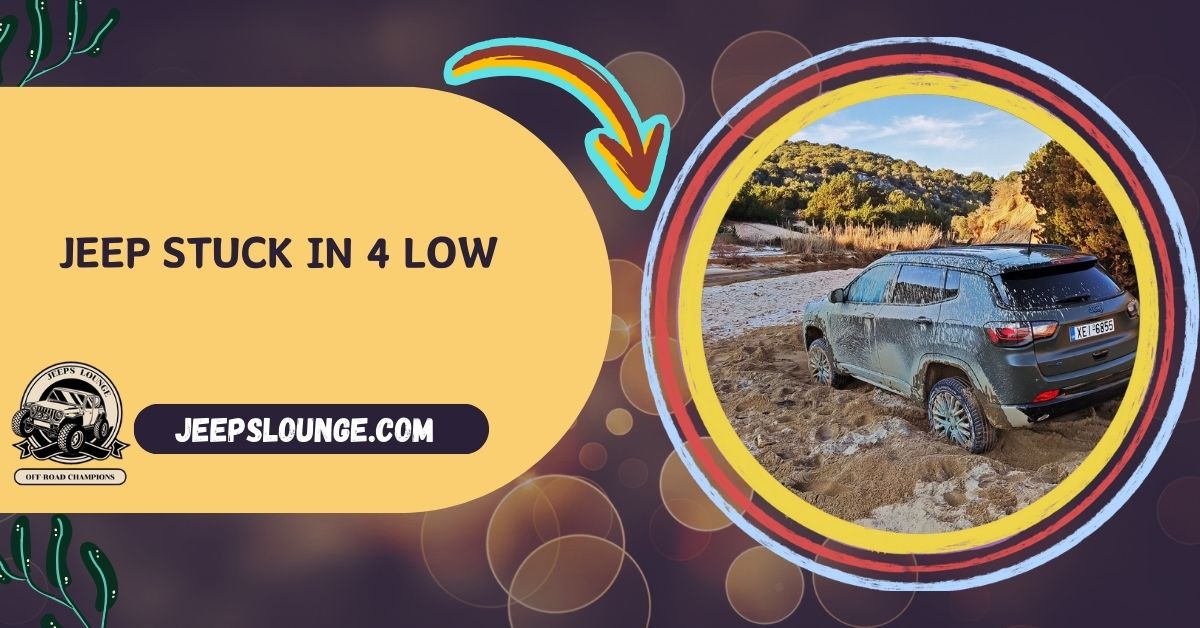Imagine carving fresh tracks through a snowy wonderland in your trusty Jeep. But wait, the road ahead turns white-knuckled white – a blizzard has dumped inches of fresh powder. Can your Jeep conquer this wintery challenge, or will it need extra help?
You can not enjoy fast driving with chains on as chains typically come with reduced speed limits (often around 30-50 mph). Exceeding these limits could be dangerous and cause a rapture to your vehicle.
Fear not, intrepid adventurer! This guide will answer the burning question: Do Jeeps need snow chains? We’ll dive deep into the factors at play, helping you make informed decisions for safe and confident winter driving in your Jeep.
Table of Contents
Key Considerations:
Jeep’s Off-Road Prowess: Let’s face it: Jeeps are known for their off-road capabilities. But even the most rugged model can struggle in extreme winter conditions. Factors like ground clearance, tyre type, and differential systems play a role.
Tyre Talk: Your tires link your Jeep and the snowy road. Mud-terrain tyres offer decent grip, while all-terrain options provide a balance. But for ultimate winter performance, dedicated winter tyres with deeper treads and softer compounds reign supreme.
Mother Nature’s Fury: Remember, winter isn’t a one-size-fits-all season. Consider the specific snow depth, terrain (steep inclines?), and temperature you’ll encounter. A light dusting on flat roads might be manageable, but a blizzard demands extra precautions.
Should You Chain Up Your Jeep?
While Jeeps are capable, snow chains can be a game-changer in challenging winter conditions. Here’s why:
Traction Titans: Snow chains bite into the snow and ice, significantly improving traction and control compared to even the best winter tyres. This translates to safer braking, cornering, and hill climbing.
Peace of Mind: Knowing you have the extra grip of chains can provide confidence and peace of mind when venturing into wintery unknowns.

But remember, chains come with trade-offs:
Noise and Vibration: Expect a noisy ride with increased vibration. It’s not exactly a smooth cruise, but it’s a small price for safety in harsh conditions.
Speed Limits: Driving with chains usually requires reduced speed restrictions, so plan your journey accordingly.
When To Chain Up Your Jeep:
Legal Lowdown: Check your local regulations – some areas mandate chains in certain winter conditions.
Snow Depth and Terrain: When facing deeper snow, icy roads, or steep inclines, even the most capable Jeep might benefit from the added security of chains.
Tyre Limitations: If your Jeep lacks dedicated winter tires, chains become an even more crucial consideration for safe winter driving.
Alternatives To Snow Chains: When Jeeps Need Snow Chains
Winter Tyres: While not a complete substitute for chains in extreme conditions, winter tyres offer significantly better performance compared to all-season tyres in winter weather.
Locking Differentials: Some Jeep models boast locking differentials, which can enhance traction but are not a replacement for chains in severe winter conditions.
Critical Considerations For Deciding If Your Jeeps Need Snow Chains:
Jeep Models And Capabilities:
Wrangler: Renowned for its off-road prowess, it boasts high ground clearance and short wheelbase and often comes equipped with mud-terrain tyres. While capable of light snow, its aggressive tyres might struggle in deeper snow or on ice. Consider winter tyres or chains for extreme conditions.
Cherokee: This versatile SUV offers a comfortable balance of on-road handling and off-road capability. Depending on the trim level, it might have all-terrain or mud-terrain tyres. Winter tyres or chains are recommended for heavier snow or icy roads.
Grand Cherokee: This larger SUV prioritizes on-road comfort while still being capable on moderate off-road terrain. All-terrain tyres are common, but winter tyres or chains are crucial for tackling winter challenges.
Renegade and Compass: These smaller Jeeps prioritize on-road performance and often come with all-season tyres. Winter tyres and chains are highly recommended for winter driving due to their lower ground clearance and less aggressive options.
Tyre Types And Sizes:
Mud-Terrain Tyres: Designed for off-road grip, they might lack the winter-specific tread patterns needed for icy roads or deep snow. Consider chains or winter tyres for harsh conditions.
All-Terrain Tyres: A balance between on-road comfort and off-road capability, they offer some winter performance but might struggle in extreme conditions. Winter tyres or chains are recommended for heavier snow or icy roads.
Winter Tyres: Specifically designed for winter driving, they feature deeper treads and softer compounds for optimal grip on snow and ice. Chains can still be beneficial in extreme situations.
Remember: Bigger tyres sometimes equal better snow performance. Ensure your tyre size is compatible with chains if you plan to use them.
Driving Conditions:
Snow Depth: Light dusting? Your Jeep might handle it well. But for deeper snow (4 inches or more), consider chains or winter tyres for safe driving.
Terrain: Steep inclines or uneven surfaces demand extra traction. Chains can significantly improve control in these situations.
Temperature: Icy roads require the best possible grip. Winter tyres or chains are essential in freezing temperatures.

Beyond The Chains: Exploring Alternatives For Your Jeep’s Winter Grip:
While snow chains offer unparalleled traction in extreme winter conditions, they aren’t always the only option for your Jeep. Let’s explore two alternatives, each with its strengths and limitations:
Winter Tires: The Winter Warrior’s Weapon Of Choice:
For frequent winter drivers, winter tyres can be a fantastic alternative to chains. Explicitly designed for colder temperatures and snowy/icy roads, they offer several advantages:
Superior Grip: Deeper treads and softer rubber compounds, compared to all-season tyres, provide significantly better traction on snow and ice, reducing braking distances and improving cornering stability.
Smooth and Quiet Ride: Unlike the noisy rattles of chains, winter tyres offer a comfortable and quiet driving experience.
No Speed Restrictions: No need to worry about reduced speed limits like with chains, allowing for a more efficient journey.
However, it’s essential to understand their limitations:
Not as Effective in Extreme Conditions: While offering significant improvement, winter tyres still can’t match the sheer grip of chains in deep snow or on icy roads.
Cost Factor: Investing in a dedicated set of winter tyres adds to your overall vehicle expenses.
Locking Differentials: Sharing The Power For Off-Road Prowess:
Some Jeep models boast locking differentials. This system essentially “locks” the wheels on an axle together, forcing them to rotate at the same speed.
However, locking differentials have limitations when considering winter driving:
Limited Impact on Ice: Locking differentials offer a slight advantage on icy roads, where all wheels might have minimal grip.
Not a Substitute for Chains: They do not improve traction like chains, which bite into the snow and ice for enhanced grip.
Remember: Ultimately, the best approach depends on your needs and driving habits. For frequent winter driving on moderate snow and ice, winter tyres offer an outstanding balance of performance and comfort. But for adventuring into extreme winter conditions, snow chains remain the ultimate grip champions.
Frequently Asked Questions:
Q. Do My Jeeps Need Snow Chains In Winter?
A: Not necessarily! Your Jeep’s capabilities, tyre type, and specific driving conditions are crucial. Consider winter tyres for frequent moderate snow, but chains are best for deep snow, icy roads, or steep inclines, even in capable Jeeps.
Q. What Are The Legal Requirements For Snow Chains?
A: Regulations vary by region. Always check local laws and road signs, as some areas mandate chains in specific winter conditions. Ignoring these requirements can lead to fines and safety risks.
Q. Are Winter Tyres Enough, Or Do I Still Need Chains?
A: Winter tyres significantly improve traction compared to all seasons, but they can’t match the grip of chains in extreme conditions. Consider carrying chains for added security if you frequently encounter deep snow, icy roads, or treacherous terrain.
Q. Can I Use Locking Differentials Instead Of Chains?
A: Locking differentials help transfer power but don’t improve individual wheel traction like chains. They might be beneficial in off-road situations, but chains are the superior choice for icy roads or deep snow.
Q. Are Chains Noisy And Inconvenient?
A: Yes, chains can be noisy and vibrate and often have speed restrictions. However, the trade-off for significantly improved traction and control in harsh conditions can be worthwhile for safety and peace of mind.
Q:. How Do I Choose The Right Size Chains For My Jeep?
A: Consult your Jeep’s owner’s manual or tyre size information to determine the correct chain size. Remember, chains that are too big can damage your vehicle. Consider buying chains before winter arrives to avoid last-minute struggles.
Q. Where Can I Buy Snow Chains?
A: Auto parts stores, hardware stores, and some outdoor retailers sell snow chains. Online options are available, too, but remember to double-check size compatibility.
Final Gear-Up For Your Jeep’s Winter Journey:
Remember, there’s no one-size-fits-all answer. The best approach depends on your individual needs and driving habits. Consider your frequency of winter driving, the severity of conditions you encounter, and your budget to make an informed decision.
Now, it’s your turn to share your winter driving experiences with your Jeep! Did you ever use chains? What are your go-to tips for conquering snowy roads? Let’s keep the conversation rolling and help each other navigate winter adventures safely and confidently in our beloved Jeeps!




